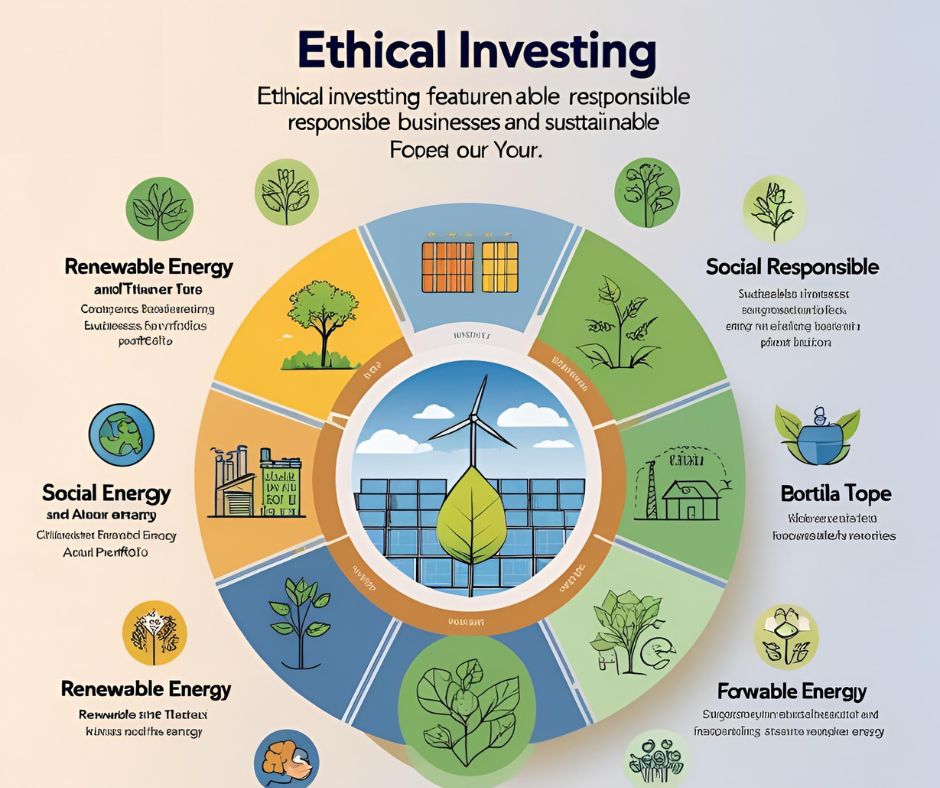
Ethical investing has moved from a niche interest to a mainstream financial strategy across Australia. At its heart lies ESG — a framework that evaluates companies based on Environmental, Social, and Governance factors. With Australians increasingly conscious of their investments’ broader impact, ESG has become a powerful tool for aligning financial goals with personal values.
In Australia, investors are demanding more transparency and accountability from businesses, especially regarding climate impact, workplace diversity, and ethical governance. Financial planners like James Hayes, based in the Sutherland Shire, specialise in creating ethical portfolios that reflect these modern priorities.
Quick Tips for Ethical Investing with ESG in Australia
- Start with Your Values: Identify what matters most—climate action, diversity, human rights, or corporate integrity.
- Understand ESG Ratings: Use third-party ESG scores to assess investment opportunities.
- Balance Ethics and Performance: Many ESG portfolios deliver competitive returns with lower long-term risk.
- Avoid Greenwashing: Work with trusted financial planners to verify a fund’s true ESG credentials.
- Diversify Responsibly: Ensure ethical choices are spread across sectors to minimise volatility.
- Review Investment Holdings: Look into what companies are actually inside your ESG fund.
- Prioritise Transparency: Look for funds or companies that disclose ESG metrics clearly.
- Consult a Professional: ESG investing requires deep analysis—get help from an ethical advisor like James Hayes.
- Stay Current: ESG regulations and reporting standards are evolving in Australia.
- Think Long-Term: ESG investments may take time to show results, but can offer resilience in uncertain markets.
What Does ESG Stand For in Ethical Investing?
ESG stands for Environmental, Social, and Governance — three pillars used to assess the ethical and sustainable practices of companies. ESG criteria help investors evaluate how businesses handle climate risk, treat people, and manage internal governance. In Australia, these factors are now core components of responsible investing.
Why ESG Matters for Australian Investors
Australian investors face unique ESG challenges and opportunities—such as managing climate-related risks, supporting Indigenous communities, and complying with local corporate governance laws. Aligning your investments with ESG standards helps mitigate long-term risk and support meaningful social impact.
How ESG Contributes to Financial Performance
Contrary to outdated views, ESG-aligned investments often perform just as well—or better—than traditional portfolios. Sustainable companies may be more resilient during downturns, attract talent, and avoid regulatory fines, making them solid long-term investments.
Understanding Environmental Factors
Environmental criteria focus on a company’s impact on the planet. This includes carbon emissions, renewable energy use, waste management, and climate change mitigation. In Australia, where climate change has real economic consequences, this component is increasingly vital for ethical investors.
Understanding Social Factors
Social metrics evaluate how a business treats employees, communities, and customers. Key aspects include diversity, labour rights, health and safety, and community engagement. These factors are especially important to Australian investors who value social equity and corporate responsibility.
Understanding Governance Factors
Governance focuses on leadership quality, executive pay, board diversity, shareholder rights, and transparency. In Australia, sound governance is essential due to strict corporate regulations. Ethical investors want assurance that companies are well-managed and accountable.
ESG vs. Ethical Investing
While ESG provides a measurable framework, ethical investing is broader and driven by personal values. Ethical investors may exclude sectors like tobacco or gambling regardless of ESG ratings. James Hayes helps clients merge ESG analysis with personal ethical boundaries.
ESG and Superannuation in Australia
Many super funds in Australia now offer ESG-focused investment options. Reviewing your super’s holdings and switching to an ethical alternative can align your retirement savings with your values without sacrificing returns.
Greenwashing: What to Watch Out For
Greenwashing is when companies overstate or falsify their ESG credentials. Avoid being misled by consulting with ethical investment experts like James Hayes, who critically evaluate sustainability claims and fund compositions.
How to Build an ESG Portfolio in Australia
Start by defining your ethical goals. Then, assess ESG ratings and exclude non-aligned industries. Diversify across sectors like renewables, ethical tech, and healthcare. A certified financial planner ensures compliance and performance alignment.
ESG Integration in Australian Regulations
Australian financial regulators, such as ASIC and APRA, are tightening disclosure requirements around ESG. Investors must consider these factors, especially as climate and social risks become financially material.
Sectors Leading ESG in Australia
Renewable energy, green technology, health care, and education are some of the sectors thriving under ESG principles. These industries not only perform well but also drive positive environmental and social outcomes.
ESG Risks to Watch For
ESG investing is not risk-free. Companies may underperform despite high ESG scores, and external factors like regulation changes or economic downturns can impact performance. Risk mitigation comes from thorough research and professional advice.
Ethical ETFs and Managed Funds
Australia offers a growing list of ESG-based ETFs and managed funds. These products simplify access to ethical investing, though due diligence is necessary to verify their claims and holdings.
The Role of Financial Planners in ESG
A qualified financial planner, like James Hayes, provides tailored ESG investment strategies, manages risk, and ensures compliance with evolving standards. Their guidance is especially valuable for building a strong, ethical portfolio in today’s complex market.
How ESG Affects Long-Term Wealth
Investing in companies with high ESG standards can protect your wealth from reputational risk, lawsuits, or market disruption. Over time, ethical investing may deliver more consistent returns while aligning with personal values.
ESG and Community Investment
Ethical investing can go beyond big corporations. Investors may also support local projects, Indigenous businesses, or community housing initiatives, creating direct social impact while achieving returns.
Evaluating an Investment’s ESG Score
Many rating agencies assign ESG scores based on risk exposure and performance. These scores vary, so it’s important to understand their methodology or consult a financial planner to interpret them correctly.
Impact of ESG on Millennials and Gen Z
Younger Australians are prioritising ethical investing. Their values are shaping the future of finance, pushing institutions to adopt more transparent, purpose-driven strategies. ESG investment demand is growing in this demographic.
Customising Your ESG Strategy
No two investors are the same. James Hayes helps Australians customise their ESG investment strategy based on values, risk appetite, and financial goals—balancing ethics with robust performance.
Why ESG Investing Is Here to Stay
Global trends and local demands mean ESG is not a fad. Companies are being held accountable like never before. For ethical investors in Australia, ESG offers a credible, data-driven path toward sustainable returns.
FAQs: ESG and Ethical Investing in Australia
1. What does ESG stand for?
ESG stands for Environmental, Social, and Governance—three key criteria used to evaluate ethical investments.
2. Is ESG investing popular in Australia?
Yes. ESG investing is growing rapidly in Australia, especially among younger and sustainability-focused investors.
3. Are ESG investments profitable?
They can be. Many ESG funds match or outperform traditional investments over time.
4. How do I check if a fund is truly ethical?
Review its holdings and ESG ratings. Consult a planner to avoid greenwashing.
5. Can I invest ethically through my super?
Absolutely. Most Australian super funds offer ethical or ESG-aligned investment options.
6. What’s the difference between ESG and ethical investing?
ESG is a measurable framework, while ethical investing is more personal and values-driven.
7. How do ESG ratings work?
Independent agencies assign scores based on a company’s ESG performance and risk.
8. Are ESG investments safe during downturns?
They tend to be more resilient, especially those with strong governance and environmental practices.
9. Who can help me build an ESG portfolio in Australia?
A certified financial planner like James Hayes can build and manage your ESG investments.
10. Is ethical investing just a trend?
No. It’s a global shift in how people invest, driven by transparency, risk, and personal values.



